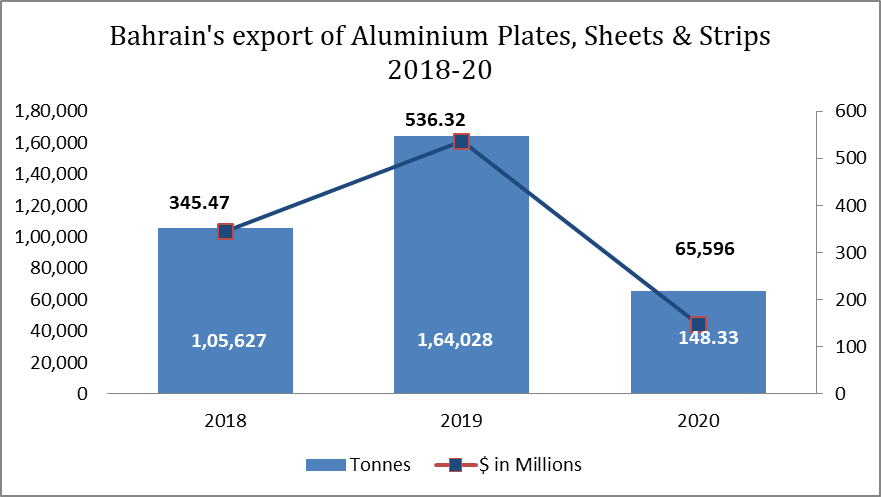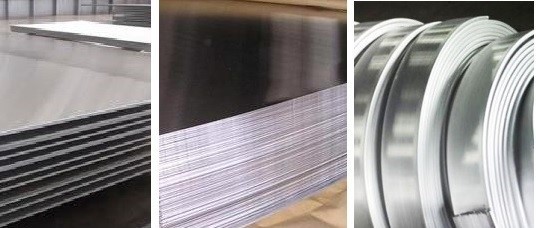

The crucial turmoil by COVID-19 and the augmented sharp fall in oil prices weighed heavily on Bahrain’s economy in 2020. Fiscal and external deficits slumped, reversing the narrowing path observed in 2019. Worldwide access to the vaccine, higher oil prices, and commitment to implement policies under the Fiscal Balance Program, particularly those about tackling budget rigidities and providing financial support to the most vulnerable, will improve the outlook. Downside risks arise from the further resurgence of COVID-19 outbreaks, volatility in hydrocarbon prices, and delays in fiscal reforms.

The island nation on the Persian Gulf exported 269, 655 tonnes of aluminium plates, sheets and strips during 2018-19 and the generated foreign revenue of $881.79 million. The export for 2020 stood at 65,596 tonnes and the earnings remained at $148.33 million. However, when the export volume and earnings of 2018-19 get assorted with 2020, it signifies 335,251 tonnes and $1.03 billion respectively.

In 2018, the Kingdom of Bahrain’s export of aluminium plates, sheets and strips was recorded at 105,627 tonnes and the earnings accounted for $345.47 million, whereas, in 2019, the export surged by 55.28%, as the export volume rose to 164,028 tonnes and the earnings soared to $536.32 million.
The export for 2020 revealed a drastic downfall of 60.01%, as the export volume declined to 65,596 tonnes and the earnings dropped to $148.33 million.
Bahrain’s major trading destinations for the export of aluminium plates, sheets and strips are Australia, Canada, China, France, Italy, Japan, Jordan, Lebanon, Malaysia, Mexico, Netherlands, USA, etc.
Responses








